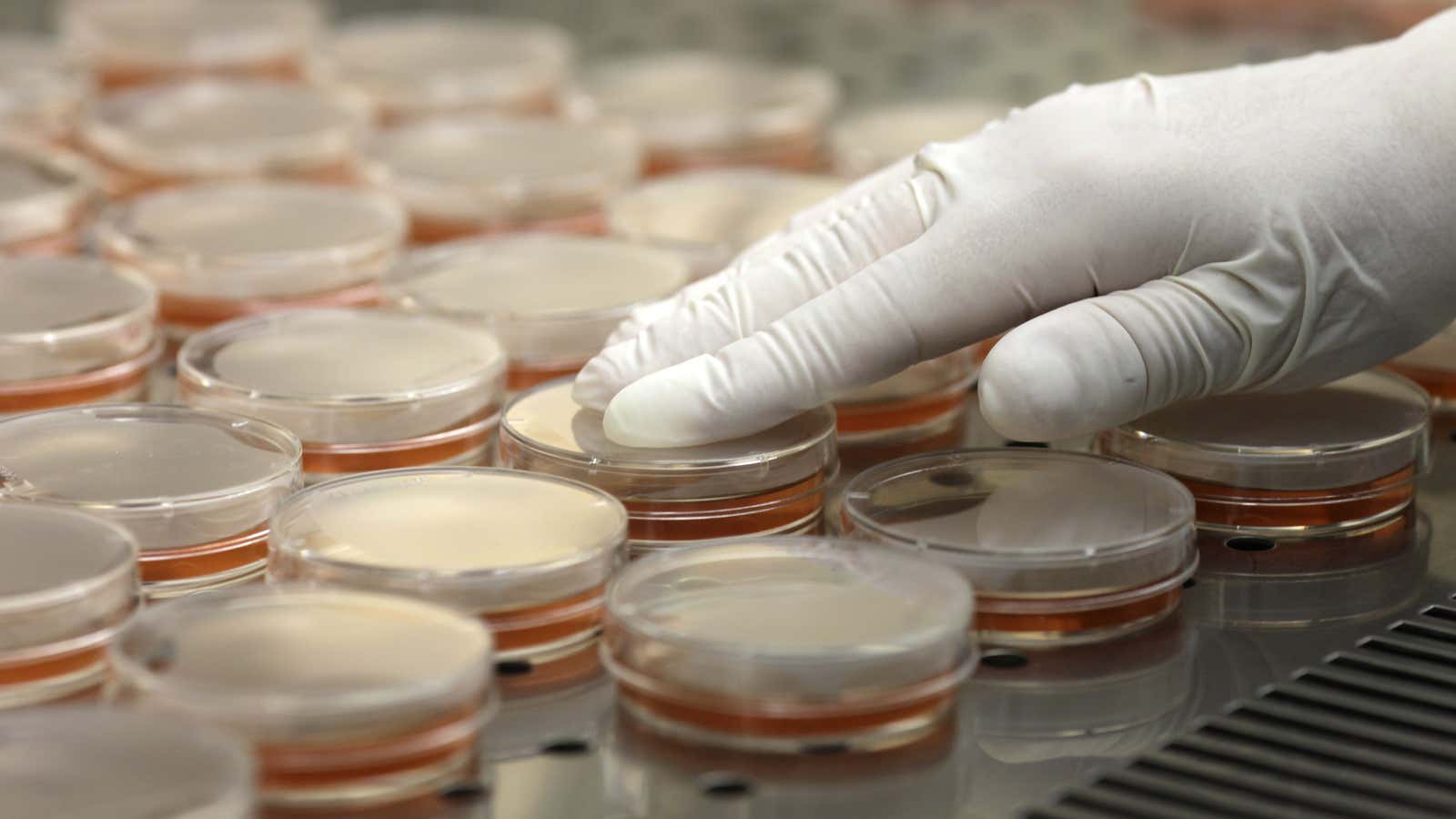Scientists say we may be on the verge of a “post-antibiotic” world, with the discovery of bacteria resistant to last-resort antibiotics. In a new, ominous study, researchers describe a new gene mutation that prevents a drug called colistin from killing off a variety of common bacteria including E. Coli.
The gene, dubbed mcr-1, has been identified in patients and livestock in China; researchers say the resistance likely developed from overusing colistin on farm animals, the BBC reports. A fifth of the animals tested by the scientists, as well as 16 human patients and 15% of raw meat showed resistance. China is the world’s largest user of the drug for veterinary and agriculture purposes, and its government is already looking into assessing risks of using colistin.
The “antibiotic apocalypse” described in the report published online Nov. 18 in Lancet Infectious Diseases, means that in the foreseeable future, doctors will face “increasing numbers of patients for whom we will need to say, ‘Sorry, there is nothing I can do to cure your infection,'” according to commentary included in the study.
What makes the mcr-1 gene highly dangerous is its ability to copy itself and transfer onto other bacteria, spreading easily.
“If MRC-1 becomes global, which is a case of when not if, and the gene aligns itself with other antibiotic resistance genes, which is inevitable, then we will have very likely reached the start of the post-antibiotic era,” Timothy Walsh, a professor at University of Cardiff who worked on the study, told the BBC.
